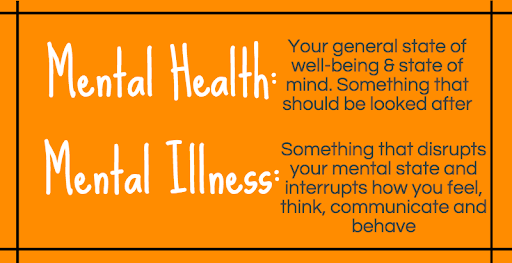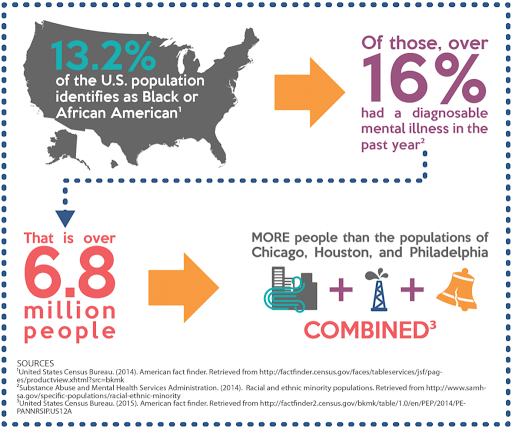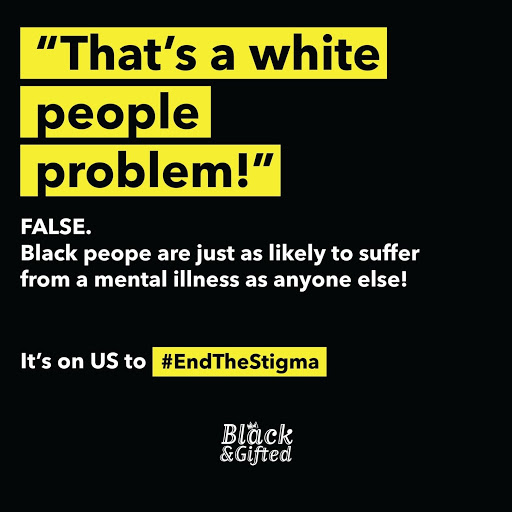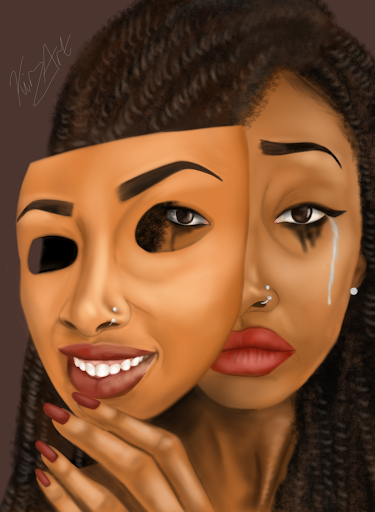After a chance meeting with a stranger, I began to ponder if this principle is one we could apply to our mental wellness. Having bumped into Maegan Yoder, a licensed mental health nurse in Pueblo, Colorado, I was left restless with many thoughts running wild.
Surprisingly, Kanye West’s recent mental health struggles came to mind and how this was the reality for many Africans in America today. So, why is mental health still such a testy topic for many?
Before diving further into our conversation, I would like to explain what exactly mental illness is and why in fact an apple a day will not keep mental illness at bay.
According to the World Health Organization (WHO), mental health is “a state of well-being in which the individual realizes his or her own abilities, can cope with the normal stresses of life, can work productively and fruitfully, and is able to make a contribution to his or her community.”

After speaking with a much dedicated Maegan and also having done a great deal of research, I discovered that mental illness in the African American community is deeply complex, primarily due to factors beyond any individual’s control.
Many people do not realize how common mental illness is in their community. According to Maegan, this is due to the lack of awareness, knowledge, and information that is in fact not provided to people of color.

Maegan found that in her experience, mental health services are not only inadequately set up for the challenges presented by the African community. However, the ignorance and bias of some mental health professionals bleeds into the care that is provided to patients.
Her reflections shine light on factors that many others will never experience just because of the color of their skin. She believes these are the main problems people face at the hands of professionals:
- Many professionals failed to simply care and be humane.
- “Pain” was not taken seriously.
- African Americans were “weak” and just could not handle everyday stressors.
- Mental health concerns were more likely to be ignored and dismissed.
- Men were under-diagnosed due to toxic masculinity.
- People were not heard or validated for their feelings or experiences.
- People seeking help were undermined and commonly misdiagnosed because of personal biases.
- A lack of empathy and compassion during training led to a cold, dispassionate service.

Considering the number of people who are unwell, this is a disappointing discovery. However, Meagan also pointed out how her patients faced barriers that compounded their problems. Beyond, the lack of awareness, she noted that during her sessions many clients presented with the following:
- The belief that they should be ashamed for being unwell or for asking for help.
- The idea that “mental illness” had a stigma attached to it, and they were weak for not being able to handle their “business” behind closed doors.
- Judgments and self-help advice given by family and friends, usually undermined the individuals, creating further isolation and distress.
- The misconception that “you will get over it, if you toughen up”.
- Feelings of inferiority and being useless.
- The lack of resources in the area.
- Mental health services are staffed by white American providers who do not allow for trust to build or heal the painful history with the medical profession.
Mostly, Maegan reflected that without adequate education and confidence, people are stuck in a vicious cycle, where they cannot distinguish between a healthy and unhealthy state of mind. With all this in mind, it isn’t unsurprising that people lack the ability to advocate for better care.
This at its core challenges us to look within ourselves to see why someone ” supposedly different” is not worthy of the same quality of care. I think the historical manifestations of slavery and the stripping down of identity, power and self-worth is where the real problems exist. Repairing these harms requires compassionate and kind medical professionals, therapists, and mental health practitioners.
For those of us, who have been shamed for feeling mentally unwell, I think it is time to be honest with ourselves. Why do we choose to suffer? And who controls our narrative? With the help of Meagan, here are few things to remember:
- Mental illness that affects your brain chemistry will not heal without medication.
- If you are willing to take your asthma medication, then why are psych medications any different?
- If your symptoms remain unchanged or get worse after a two-week period, then you need to seek help.
- You are not alone, and this will not go away by itself.
- Learning coping mechanisms is not a hindrance.
- Keep asking questions and DO NOT stop until your voice is heard.
- Your family and friends may have your best interest at heart but they do not know your pain.
- Trust your feelings.
- You deserve the best care regardless of what anyone else is telling you.
- Empowering yourself is the only way to control your narrative.

With all this in mind, I would like to say that an apple a day may keep you healthy in many ways. It will not, however, eradicate your mental health problems. This undoubtedly is a challenge because of poverty, discrimination, poor education, and professional biases. However, even with these obstacles, we must be aware that no one can advocate for our wellness- only we can. If we do not believe we deserve to be treated with respect and kindness we will not be. This is your act of kindness, please seek help, keep making noise until you receive the care you deserve. This is a collective call to break the shackles of the past and live a healthy, happy life.
Please watch this video. It will help you:




